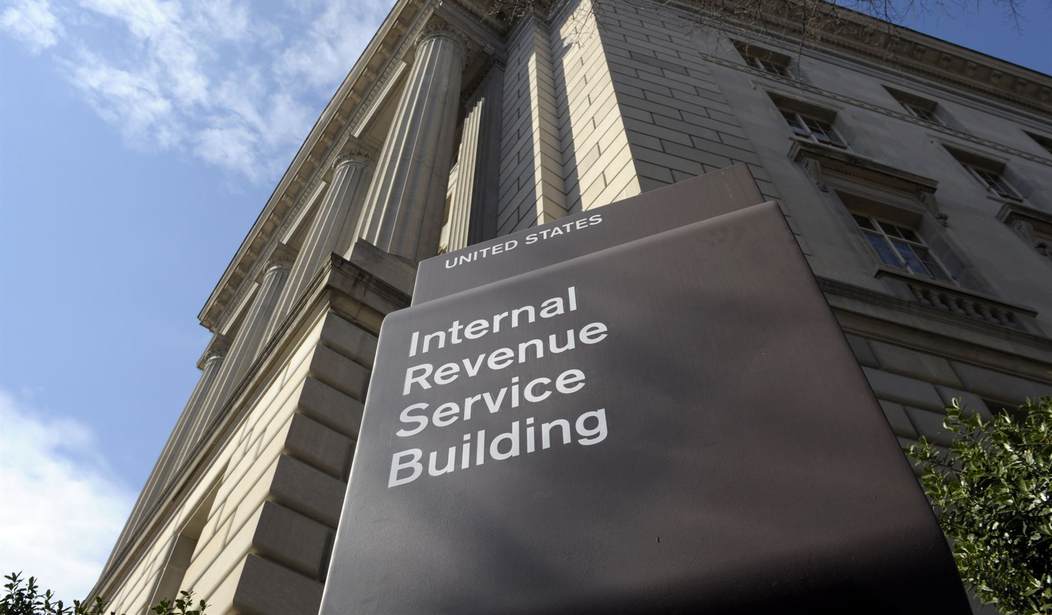The IRS announced that some taxpayers can use a new IRS "direct file" system to file their taxes. As a CPA who has helped hundreds of clients over 15 years, I want to warn taxpayers and policymakers: this is a bad idea. This IRS expansion as a filer of taxes will likely mean taxpayers pay more, private data will be at risk, and it will take away from important services that the IRS provides. Here's why Americans should be cautious before trusting the IRS to be not just their collector and auditor, but also their tax preparer.
First, the IRS's expansion into preparing taxes is a clear conflict of interest. My role as a CPA is to help my clients pay the taxes they owe but not a penny more, while helping them navigate the complex federal tax code. If I can deliver that service to clients, they will keep using me. But the IRS's goal is almost the opposite: to collect maximum revenue to fund governmental operations. And if the IRS's service as a tax preparer is subpar, taxpayers certainly have no recourse.
That's why taxpayers should think twice before trusting tax filing decisions to the IRS. I have no doubt that the IRS's intentions are good, but whatever their intentions, why would you trust your filing decisions to an agency that wants you to pay the most in taxes?
As CPAs and tax preparers, our job is to help clients understand which credits they are eligible for and what tax strategies to pursue. These questions are sometimes black and white, but often they're complex. Even something seemingly as simple as a married couple deciding to file jointly or separately can be complex decision that has a large impact on a family’s tax bill and can affect monthly student loan repayments and medical expenses that can be deducted. My job and my success depend on explaining these options to taxpayers so they save money. But the IRS has no such mandate.
Recommended
Because the taxpayers I serve often have complex tax situations, it's unlikely they would use this IRS as their filer. But what if the IRS expands this program? Or, down the road, makes it mandatory for everyone? It's not farfetched for a government program to start as a pilot and then eventually become the law of the land.
Second, this is a massive data privacy and security risk. The IRS already has lots of private financial data. But if the IRS becomes your preparer, it will have greater access to forms and financial statements filers typically share only with a CPA or tax preparer. This will present an irresistible target for scammers, hackers, and hostile governments. Additionally, laws like the Gramm-Leach-Bliley Act and the FTC Safeguards rule holds tax professionals accountable for data security. Tax professionals must have a written security plan and must immediately respond to breaches and notify their clients. Who will hold the IRS as a tax preparer accountable, and what recourse will taxpayers have if and when a breach occurs?
The IRS's record on data security is weak. Last month, a contractor was sentenced to five years of prison for leaking confidential tax records. In September of 2022, the IRS announced 120,000 taxpayers' private data was made public. The IRS has been hit by malware, had at least 700,000 social security numbers and other sensitive information stolen, and China has long successfully targeted U.S. agencies for private information. The risk of a leak will only be greater if the IRS houses more of your data.
Third, this will mean harm to other IRS services. Creating a direct filing system is a massive, complicated endeavor. Money and time will be spent duplicating something the private sector already offers. The IRS’s customer service has been a disaster in recent years. I have clients who have waited months to get a response or who received outdated or incorrect notices from the IRS. And clients who waited a year or more to receive their refunds. For many months after the pandemic ended, the IRS was not even able to answer the Preparer Hotline set up specifically for CPAs and other tax professionals to call with questions and to resolve issues between taxpayers and the IRS. The clients did nothing wrong, they’re just dealing with a massive backlog at the IRS. Why should we distract the IRS with a new mandate that will take away from the services that the IRS needs to provide so taxpayers can pay their taxes and CPAs can do our jobs?
Finally, this entire project is fundamentally unnecessary. The IRS has promoted this as a resource for Americans who can't afford to pay a CPA or a tax prep company to file taxes, but tax filing is already free for low-income Americans. Last tax season, more than 30 million taxpayers filed for free using the commercial tax preparation solutions and today there are more than three dozen nonprofits that provide free tax prep for Americans. A government solution like Direct File does not change the number of free options that already exist.
I understand the intent behind this program is good. But my advice to policymakers is to make sure the IRS is doing the job it is meant to do instead of expanding to a whole new field that would be bad for everyone.

























Join the conversation as a VIP Member